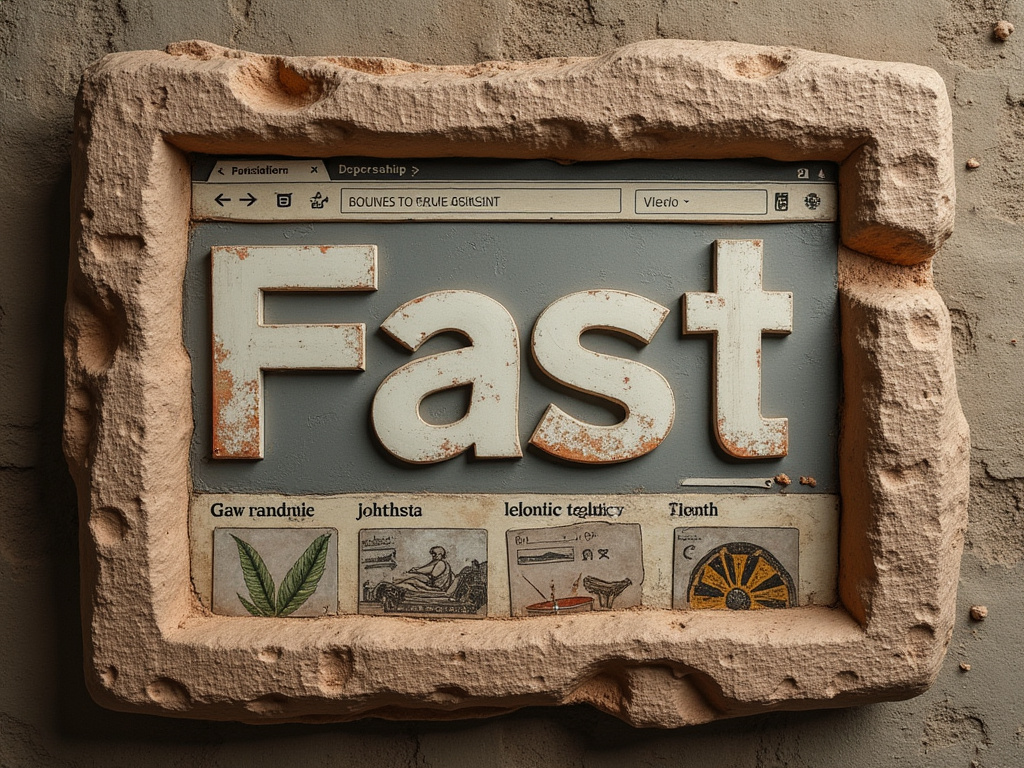Top 5: The Best Web Hosting Companies in Nigeria
If you’re running a business or blog in Nigeria and need an online presence, choosing the right web hosting provider is crucial. Your web hosting service will determine how fast your website loads, how secure it is, and how reliable your online experience will be. With many providers available, knowing which is the best can be daunting. In this article, we’ll dive into the best web hosting companies in Nigeria to help you make an informed choice.
1. Sonhosting: The Perfect Choice for Affordability and Convenience
If you’re looking for a web hosting service that combines affordability, efficiency, and ease of use, Sonhosting is an excellent choice. This company focuses on delivering high-quality services while making the process as hassle-free as possible for its users. They are renowned for being customer-centric, saving users time and money while taking care of the technical complexities involved in website hosting.
Why Choose Sonhosting?
At Sonhosting, customer convenience is a top priority. This provider understands that many website owners want to focus on creating content and marketing their business, not on the technical aspects of website management. Sonhosting takes care of all the “under-the-hood” elements, ensuring your site runs smoothly, loads quickly, and is secure.

Here’s what makes Sonhosting stand out:
- Affordable Pricing Plans: Sonhosting provides a range of plans tailored to different needs, starting with the Beginner plan at only ₦999/month. This plan is ideal for personal websites or new businesses. The Bonanza plan costs ₦2099/month, suitable for users who need a bit more flexibility. The Growth plan costs ₦3499/month and is perfect for businesses that require extensive resources, hosting up to 7 websites.
- Free Domain and SSL Certificates: Every hosting package comes with a free domain and SSL certificates, ensuring that your website is secure and that you don’t need to worry about additional costs.
- Lightning-Fast Servers: Using state-of-the-art Dell infrastructure and strategically placed servers in the US, UK, and other countries, Sonhosting guarantees blazing-fast website load times. Speed is an essential factor in retaining visitors and enhancing user experience, and Sonhosting excels in this area.
- 99.9% Uptime Guarantee: Downtime can negatively affect your business, leading to lost revenue and frustrated visitors. Sonhosting ensures that your website is always available with its industry-leading uptime guarantee of 99.9%.
- Unmetered SSD Storage: Sonhosting uses SSDs, which are significantly faster than traditional hard drives. With unmetered SSD storage, you can store all the content you need without worrying about space limitations.
- CDN Integration: Content Delivery Networks (CDNs) help distribute your website’s content across multiple global servers, reducing latency and improving load times for international visitors. Sonhosting includes this feature, ensuring your site performs well no matter where your users are located.
- Comprehensive Management Features: Sonhosting offers cPanel for easy website management, automatic backups, free migrations, and an account manager to assist with any hosting issues you encounter.
Whether you’re just getting started or looking to scale your online presence, Sonhosting’s range of features, speed, and reliability make it a top contender for the best web hosting provider in Nigeria.
Sonhosting Pricing Plans
- Beginner Plan – ₦999/month
- 1 Website
- Free Domain
- Unmetered SSD
- Free SSL
- 99.9% Uptime
- 4x Faster Server
- Bonanza Plan – ₦2099/month
- 3 Websites
- Free Domain
- Unmetered SSD
- Free SSL
- CDN
- 99.9% Uptime
- Auto Backup
- Growth Plan – ₦3499/month
- 7 Websites
- Free Domain
- Unmetered SSD
- Free SSL
- CDN
- 99.9% Uptime
- Account Manager
- Auto Backup
- Free Site Migrations
Sonhosting offers unbeatable value for businesses of all sizes, with the added benefit of stellar customer support and cutting-edge technology. Whether you are a small business, a growing startup, or an established company, Sonhosting’s flexibility makes it a top choice.
2. WhoGoHost: A Popular and Trusted Option
WhoGoHost is one of the largest web hosting companies in Nigeria, known for providing a wide array of services that range from shared hosting to cloud solutions. With affordable pricing and solid support, WhoGoHost has become a go-to provider for Nigerian businesses looking for reliable and flexible hosting options.
Why Choose WhoGoHost?
WhoGoHost is renowned for offering domain registration, SSL certificates, web hosting, and other online services under one roof. They also provide local customer support, which can be a huge advantage for Nigerian users.
Some standout features include:
- User-Friendly Control Panel: Their easy-to-use cPanel makes website management simple, even for beginners.
- Diverse Hosting Plans: WhoGoHost offers a variety of plans that suit individuals, small businesses, and large enterprises.
- Excellent Local Support: WhoGoHost’s Nigerian-based support team ensures that you can get help quickly and efficiently.
WhoGoHost Pricing Plans
- Shared hosting starts from as low as ₦2000/month.
- WordPress hosting and reseller options are also available.
3. SmartWeb: A Budget-Friendly Hosting Provider
SmartWeb is another popular Nigerian web hosting provider, known for offering cheap hosting plans without compromising on essential features. They’ve been in the industry for over a decade, making them a trusted name in the Nigerian market.
Why Choose SmartWeb?
SmartWeb provides:
- Affordable Hosting Packages: With prices starting as low as ₦1500/month, SmartWeb caters to those on a tight budget.
- Unlimited Bandwidth: Their unlimited bandwidth offering makes them an excellent option for businesses that expect high traffic to their websites.
- 24/7 Customer Support: They provide round-the-clock customer support to ensure your issues are resolved promptly.
SmartWeb Pricing Plans
- Shared hosting starts at ₦450/month with various other pricing tiers based on specific needs.
4. QServers: A Reliable Hosting Provider with Excellent Uptime
QServers has built a reputation for providing reliable web hosting services with top-notch security features. They focus heavily on uptime, ensuring that your website stays online and operational.
Why Choose QServers?
QServers stands out for:
- Exceptional Uptime: QServers guarantees 99.9% uptime, making them one of the most reliable providers.
- High Security: They provide SSL certificates, regular backups, and firewalls to keep your site secure.
- Scalable Solutions: QServers offers scalable hosting solutions, meaning you can easily upgrade your hosting as your website grows.
QServers Pricing Plans
- Hosting plans start from ₦2000/month for shared hosting.
- They also offer VPS hosting and reseller hosting options for more advanced needs.
5. Domainking: A Feature-Rich, Affordable Hosting Provider
Domainking is among the top hosting services in the Nigerian market and has gained a reputation for offering affordable and feature-rich hosting services and domains. With a focus on domain hosting, shared hosting, Domainking provides scalable solutions for growing businesses.
Why Choose Domainking?
Domainking offers:
- Shared Hosting Solutions: Ideal for businesses that need scalable and flexible hosting options.
- Free SSL: All hosting plans come with free SSL certificates, ensuring your website is secure.
- Domain and Hosting Bundles: Domainking often runs promotions that bundle domain registration and hosting together, making them a budget-friendly option.
Domainking Pricing Plans
- Shared hosting starts at ₦1125/month, making it one of the most affordable options available.
Conclusion
Choosing the right web hosting company in Nigeria can have a huge impact on your website’s performance, security, and overall success. Whether you’re a beginner looking for budget-friendly options or a growing business that needs robust features, there’s something for everyone in the Nigerian web hosting market.
- Sonhosting stands out for its affordable pricing and focus on customer convenience. With features like a free domain, CDN, unmetered SSD, and exceptional server performance, it’s an excellent choice for businesses that want an all-in-one solution without hassle.
- WhoGoHost, SmartWeb, QServers, and Domainking also offer reliable services, with varied pricing and features that cater to different user needs.
Ultimately, your choice should be based on your specific requirements, such as your budget, the number of websites you plan to host, and the level of technical support you require. Regardless of your choice, each of these providers offers reliable services that can help you establish a strong online presence in Nigeria.





